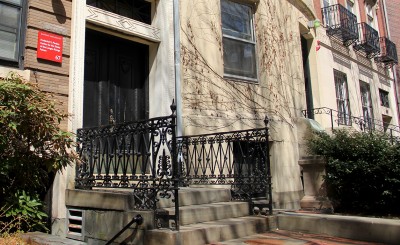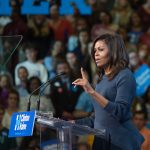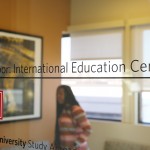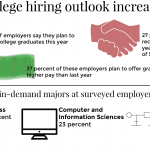
French Ambassador Laurence Tubiana spoke Monday evening at Boston University to share insights on the several steps leading to the Paris climate deal. Tubiana was the special representative for the French Minister of Foreign Affairs and International Development for the United Nations Conference on Climate Change in Paris last year.
Approximately 100 students, scholars and residents from the Greater Boston area attended “The Paris Climate Deal: An Insider Account of How it Happened” talk at Metcalf Trustee Center. Co-sponsored by the Frederick S. Pardee Center for the Study of the Longer-Range Future and the Frederick S. Pardee School of Global Studies, the gathering started with Tubiana’s explanation of the Paris Climate Deal, followed by a question-and-answer session.
The Paris Climate Conference, which concluded Dec. 12, 2015, established the commitment of 195 countries to solve global climate change. Tubiana was part of the group that began to construct the Paris Agreements in May 2014, she said.
In her speech, Tubiana said the goals of those who worked on the agreement were to be “universal, ambitious, hybrid and flexible” if the 195 countries in attendance wanted to move forward in addressing climate change. She said it has been difficult in the past to come to a consensus with countries around the globe.
Tubiana said the goal of the December conference was to find a way to engage the world population in a universal way, despite the many conflicts of interest countries had in the past.
“It was not only the government that needed this global agreement,” Tubiana said, “but the private sector as well was becoming an actor in this conversation, wanting the government to be serious. That was the main rationale behind this notion of needing the universal agreement, and we needed it as binding as possible.”
When Pardee School Dean Adil Najam asked why the Paris Conference succeeded a deal, Tubiana answered that the purpose of having a deal “has not been there” in the past.
“In a world of so much violence and uncertainty, the idea that the system can work is something that has value in the international community,” Tubiana said. “In a way, you can be skeptical about all these bureaucrats working together, but at the same time, they did have visibility.”
Several attendees said they look at the Paris Climate Conference as a hopeful step to solve the complexities of climate change, while others said the agreements made in Paris will not bring real changes.
Ana Milosavljevic, a sophomore in the College of Arts and Sciences, said Tubiana’s speech helped her understand what happened at the Paris Climate Conference.
“It was definitely good to hear from someone on the inside and have their perspective,” Milosavljevic said. “The media has its own views and biases, so it was cool to hear the specifics of what [the writers of the deal] were thinking during and after the event. She said it’s just the beginning. So it’s a good premise and going forward. It’s good to keep that in mind.”
Houchang Chehabi, a professor in the Pardee School, said he is skeptical of the agreements made at the Paris Climate Conference.
“There are no concrete targets to be reached by anybody, no enforcement mechanisms,” Chehabi said. “As long as an international agreement depends only on 195 countries making promises to do something, how can we make sure that these things will happen? Especially with governments that are not accountable to the population.”
Imogen O’Brien, a sophomore in the College of Communication, said the Paris Climate Conference led the way for nations to work together and combat climate change.
“[The Paris Climate Conference] was obviously [successful],” O’Brien said. “I more so agree with [Tubiana’s] statement in saying that it is a stepping stone on the way to a more successful discussion and agreement, compared to past climate discussions.”




